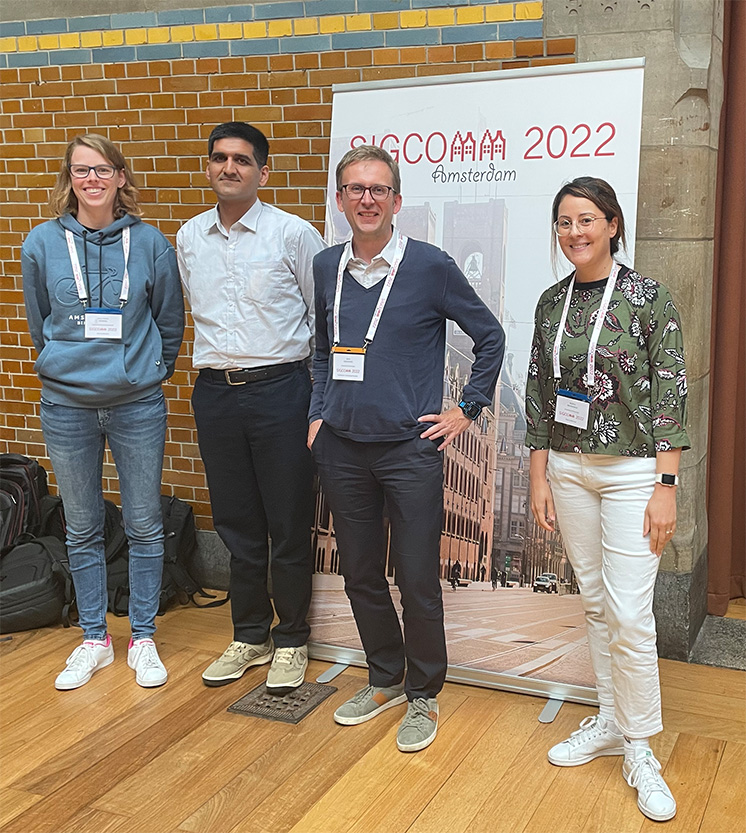Saad Saleh presented his research on Memristor-based Cognitive and Energy Efficient In-network computing at the Brainspiration 2022 conference, University of Twente, Netherlands. The conference focused on brain-inspired concepts and materials for information processing.
The motivation for brain-inspired computing emerges from the current generation of computers which huge amounts of energy resources and lack cognitive functionality which is critical for many applications like self-driving cars. In this regard, the CogniGron research center at the University of Groningen has developed materials, called memristors, which consume less energy resources and provide cognitive functionality similar to the human brain. Saad presented the use of these cognitive materials for the Internet components and showed various design models and techniques for incorporating cognitive functionality inside the Internet. Preliminary results have shown promising power consumption statistics of these materials for Internet components requiring little (16 uW during operational mode) to no energy consumption (during standby mode).
The speakers and attendees at the conference included renowned scientists and researchers from academia and industry including Beatriz Noheda (CogniGron), Julie Grollier (Thales), John Paul Strachan (Forschungszentrum Jülich), Abu-Sebastian (IBM), Andrea Liu (UPenn), Wilfred Gerard (UT), Wolfram Pernice (Heidelberg University), and researchers from HP labs (USA), Sandia National Labs (USA), AMOLF (NL).
This research is in collaboration with Anouk Goossens and Tamalika Banerjee from Zernike Institute of Advanced Materials, University of Groningen. For more information about this research, contact Saad Saleh or Boris Koldehofe (Adviser).
